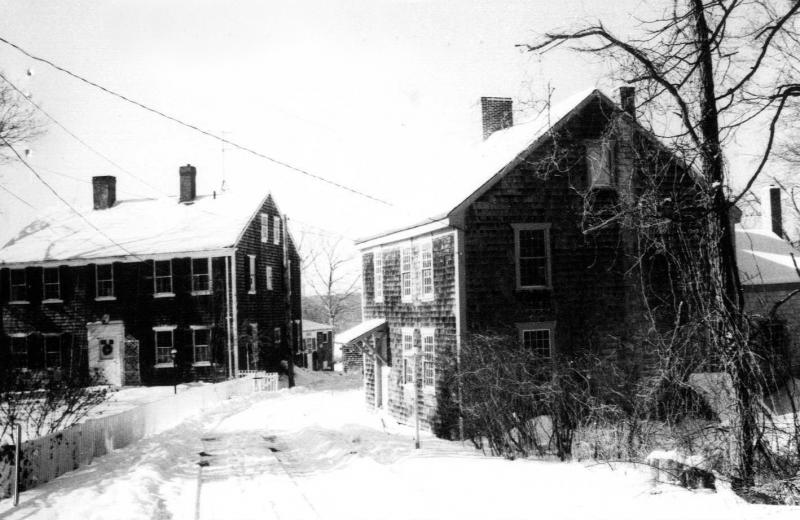Job S. Gidley: the man behind Gidley School
The following is part 1 of a series explaining the man behind the Gidley School. Readers can expect memoirs and photos of both Gidley and his namesake school in the coming month. Ahead of its scheduled demolition, a memorial for the school will take place on February 13, 6 p.m., at Quinn Elementary.
Job Scott Gidley was known for traveling on a white horse.
As a teacher, town moderator, and long-term member of the School Committee in Dartmouth in the mid-1800s, it was said that Gidley moved to and from meetings on a white horse. The horse became iconic for Gidley, as his good deeds stretched from town offices, to the Quaker and agricultural communities, both of which he was heavily involved in.
Gidley was born in Dartmouth on March 21, 1844 to Philip and Eunice (Kelley) Gidley. The devout Quaker couple, along with their six children, lived in North Dartmouth.
Eunice Kelley was herself born into a Quaker family from Dennis and had attended public schools on Cape Cod. She boarded at the Providence Friends School, and was a teacher in Dennis and Yarmouth — where she earned $1 each week — as well as in Padanaram and Bakerville. Eunice was a major influence on her son, who would attend public schools in Dartmouth and also board at the Friends Boarding School in Providence, where he later went on as a faculty member.
Teaching in Providence, Gidley distinguished himself as a Quaker lecturer as a young man. He often travelled to other areas — including Nantucket, Canada, Philadelphia, and New Jersey — to speak at various Friends Monthly, Quarterly and Annual Meetings. He was very interested in the particular sect known as the Conservative Quakers, which follows Christianity unaltered by church doctrine and practices the waiting worship similarly to the original Friends. Gidley is credited with promoting their cause.
Following Ohio Yearly Meeting's acknowledgment of North Carolina Yearly Meeting in 1911, the seven Conservative Yearly Meetings enjoyed a period of harmony, united in polity, practice and belief. In 1911, representatives of these Yearly Meetings met in Barnesville, Ohio, to consider publishing a joint statement of Conservative belief. Job Gidley, a minister and clerk of New England Yearly Meeting, promoted and may have initiated this project. The conference produced a Brief Synopsis of the Principles and Testimonies of the Religious Society of Friends, which was adopted by all seven of the Yearly Meetings in 1912 and published in 1913. This document, which gives a clear summary of Conservative Friends' belief at that time, is briefly described in Appendix A. [not included here].
— excerpt from “A Short History of Conservative Friends,” http://www.snowcamp.org/shocf/shocframes.html
Gidley was instrumental in nurturing the earliest Quaker boarding school in the country, the Westtown School in Pennsylvania, and took a “Sabbatical year” helping a persecuted Russian religious pacifist sect get resettled in Canada.
[Related: How Job Gidley handled immigration in the late 1800s]
Around New England, Gidley was also identified by his large figure and thunderous voice. He attended and lectured at monthly, quarterly and yearly Quaker meetings — Dartmouth had three Friends Meeting Houses within a half mile of each other in Smith Mills Village — and was involved in both state and Bristol County farm organizations. Eunice Kelley, along with two of Gidley's daughters, were school teachers and librarians, so Gidley also had profound influence on the town's schools.
His mother Eunice lived to be 100 years old, and she lived with Gidley and his family in her old age.
Robert E. Harding is the President of the Dartmouth Historical & Arts Society and a member of the Dartmouth Historical Commission. Email him at sir_ice_man@hotmail.com.













